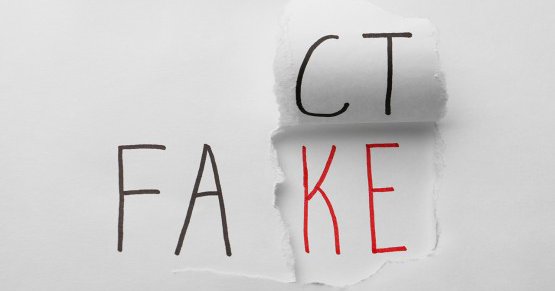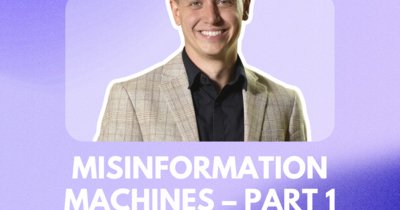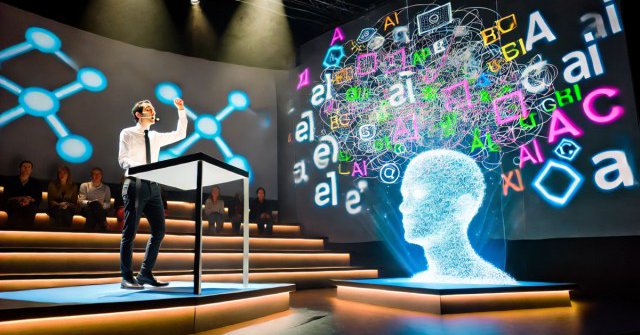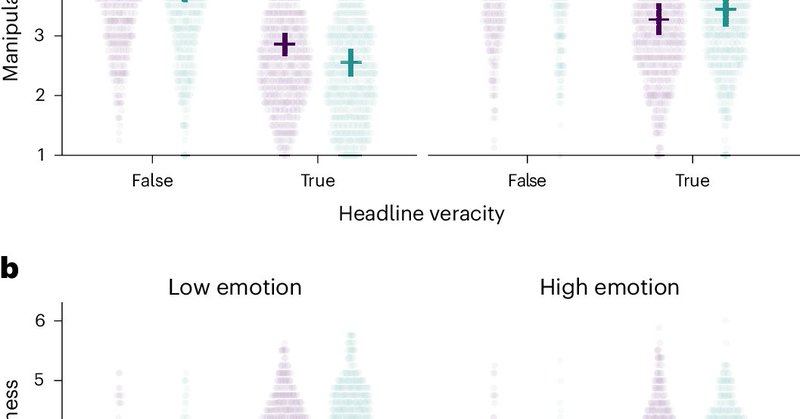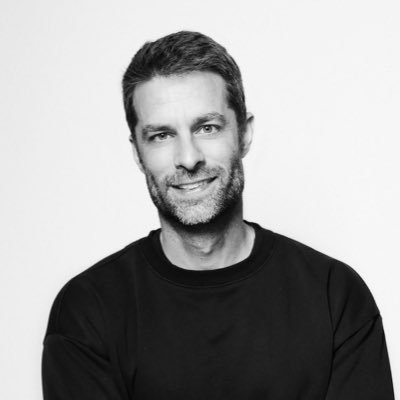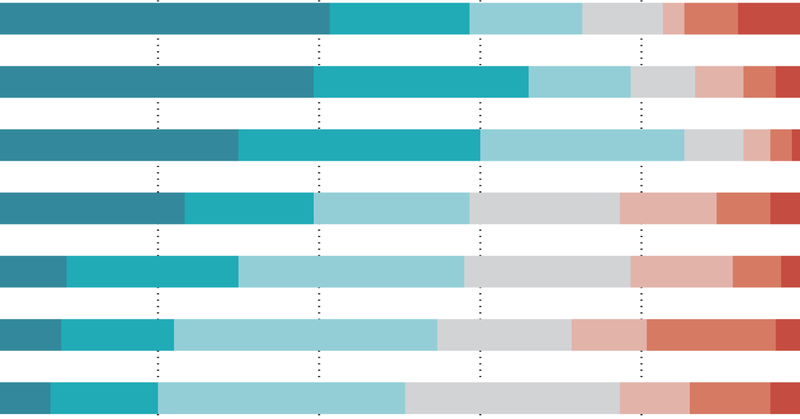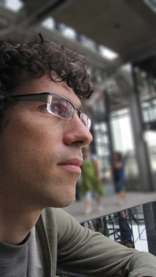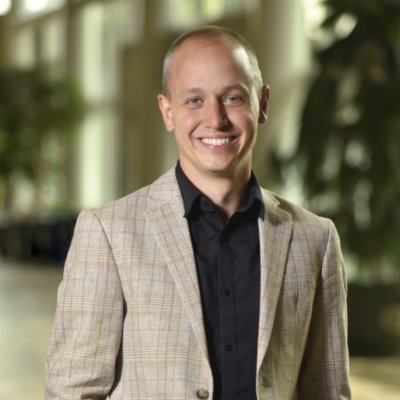
Gordon Pennycook
@GordPennycook
Followers
11K
Following
14K
Media
2K
Statuses
12K
Associate Prof @Cornell (formerly @UWaterloo/@Yale/@Hill_Levene). Reasoning, beliefs, misinfo, BS, etc. Peddler of gifs, polls. Dad. he/him
Ithaca, New York
Joined March 2015
Just FYI to anyone who is still here: I'm leaving the platform. Will retain my account in case Musk sells Twitter or something, but yah I won't be here. Will be using BlueSky when I decide to go on social media, which is something I plan on doing much less of. Cheers all!
2
0
10
‼️ NEW WORKING PAPER ‼️ Can a conversation with ChatGPT reduce certainty in false or unsupported beliefs? If so, is this because AI as a source is particularly persuasive? OSF preprint: https://t.co/uul4Li2F9U (Feedback welcome!) Here is a not so short 🧵:
5
42
178
This is a very cool paper by two of my fav people! Many studies have shown that more reflective people believe in God less. This paper shows that *changing* belief (in either direction) is ALSO associated with reflectiveness. Higher CRT = more willing to update beliefs
"On the role of analytic thinking in religious belief change: Evidence from over 50,000 participants in 16 countries" ✍️Michael N Stagnaro & @GordPennycook Key finding: Reflection is associated with belief change independent of the direction of change. https://t.co/GhAs9qEiJz
2
8
48
#3: A @CornellNews podcast with James Dean: https://t.co/RANVpSK1Wn This one is primarily focused on our recent research on psychological inoculation: https://t.co/RANVpSK1Wn I talk a bit about my background, how I got into misinfo research etc. as well, though.
news.cornell.edu
A popular strategy for combating misinformation can help people distinguish truth from falsehood – when combined with reminders to focus on accuracy, Cornell-led research finds.
0
0
7
#2: The Behavioral Design Podcast with @alineholzwarth & @SamuelSalzer: https://t.co/7eLRWqUhPn This one focuses more on misinformation in the upcoming election, including the role of AI. (Note that this is Part 1!)
creators.spotify.com
The Role of Misinformation and AI in the US Election with Gordon Pennycook In this episode of the Behavioral Design Podcast, hosts Aline and Samuel explore the complex world of misinformation in the...
1
2
6
Feel like passing the time while anxiously waiting for the election? I was on 3 fun podcasts recently #1: You Are Not So Smart with @davidmcraney: https://t.co/pWlDEzIagt Focus is on our recent AI-conspiracy belief paper. Got to join with @DG_Rand & @tomstello_!
youarenotsosmart.com
Our guests in this episode are Thomas H. Costello at American University, Gordon Pennycook at Cornell University, and David G. Rand at MIT who created Debunkbot, a GPT-powered, large language model…
2
4
36
.@GordPennycook et al. found that while psychological inoculation helps detecting misinformation at scale globally, it may not be effective unless it is combined with accuracy reminders. @STWorg @DG_Rand @AdamBerinsky @hauselin
https://t.co/tJgo7AiD9M
nature.com
Nature Human Behaviour - Pennycook et al. find that psychological inoculation, an intervention that is intended to help people detect misinformation and is being adopted at scale globally, may not...
0
16
45
Are AIs the misinformation machines? Or are we humans the originals? In our latest episode of the Behavioral Design Podcast, @GordPennycook schools @SamuelSalzer and I on all things BS and misinfo. https://t.co/ke0jJ25L8m
creators.spotify.com
The Role of Misinformation and AI in the US Election with Gordon Pennycook In this episode of the Behavioral Design Podcast, hosts Aline and Samuel explore the complex world of misinformation in the...
0
5
16
"On the role of analytic thinking in religious belief change: Evidence from over 50,000 participants in 16 countries" ✍️Michael N Stagnaro & @GordPennycook Key finding: Reflection is associated with belief change independent of the direction of change. https://t.co/GhAs9qEiJz
0
10
37
An interview with the scientists who created Debunkbot, an AI/LLM that reliably reduces belief in conspiracy theories via back-and-forth chat: https://t.co/Ma0OInWAI1 ( featuring @tomstello_ - @DG_Rand - @GordPennycook )
youarenotsosmart.com
Our guests in this episode are Thomas H. Costello at American University, Gordon Pennycook at Cornell University, and David G. Rand at MIT who created Debunkbot, a GPT-powered, large language model…
2
10
27
Psychological “inoculation”: A strategy for combating #misinformation can help people distinguish truth from falsehood – when combined with reminders to focus on accuracy, @Cornell-led research finds. #podcast @NatureHumBehav @CornellCAS @GordPennycook
news.cornell.edu
A popular strategy for combating misinformation can help people distinguish truth from falsehood – when combined with reminders to focus on accuracy, Cornell-led research finds.
0
4
6
New episode — an interview with the scientists who created Debunkbot, an AI that reliably reduces belief in conspiracy theories via back-and-forth chat, no matter how far down the rabbit hole a person may be: https://t.co/COca6xKrnb (try it at https://t.co/pBRyMlzNHa)
podcasts.apple.com
Science Podcast · Updated Semimonthly · You Are Not So Smart is a show about psychology that celebrates science and self delusion. In each episode, we explore what we've learned so far about reason...
1
8
37
So what have I learnt about #misinformation research? I tried to condense it into a list of the 5 biggest challenges the field faces. Second story in my package of stories about misinformation research is up here (and thread to come): https://t.co/08QKJ03Nma
science.org
The burgeoning field is still grappling with fundamental problems, from getting access to data to defining 'misinformation' in the first place
9
73
170
Our new working paper shows how a single choice by many social media platforms—to treat all resharing as if from the original poster—can drastically reshape our understanding of the social dynamics on those platforms. https://t.co/ZvTdjr73Ru
1
17
49
i bet academics who publish a lot while also teaching and raising children have failed to watch as many shows as i have
33
704
10K
Want to grow your own social networks to study creativity, cultural evolution & decision-making? Now official! We're hiring a postdoc at Cornell in collaboration with UC Davis, CUNY, & Princeton, funded by the #NSF. Apply here:
https://t.co/nFoyibqYEr We are recruiting two postdocs for a new interdisciplinary NSF-funded project in collective behavior, working w/ me (@ucdavis), @norijacoby (@Cornell), @daltonconley (@Princeton), and Ofer Tchernichovski (@CUNY). We look forward to your application!
0
18
31
Want to do a PhD with me at @DukeU? I'm considering applications this fall for a new graduate student! ⭐️ For more info, check out this FAQ for prospective students to learn what the lab is focusing on & what I'm looking for in a graduate student. https://t.co/i2avclMbFa
0
51
117
🚨 NEW PRE-PRINT 🚨 Our participants think >40% (!) of online users act toxic on Reddit and share fake news on FB. (😅) Are they correct? No. Research finds only a tiny % of online users produce most of (harmful) content. w/ @angelaylee374 @zakijam @jeffhancock 1/9
22
29
102
🚨New in JEP:G @APA_Journals🚨 Why do ppl preferentially reciprocate follows by co-partisans online? In a Twitter field exp & survey we find: -Both content *and* social prefs drive co-party tie-making -Distinct roles for in-party pref & out-party dispref https://t.co/DBvoUps1m6
1
19
57




